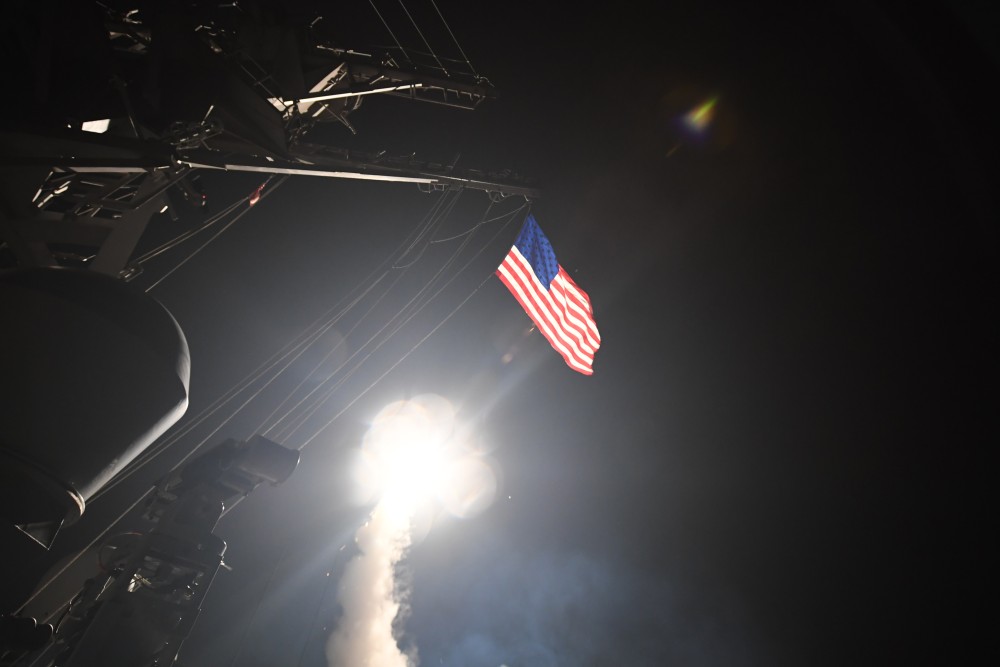Airstrikes won’t solve the crisis in Syria
American military action hasn’t helped in the Middle East before. Why would it now?

President Trump’s decision to attack a Syrian airfield on April 7 was many things. It was a swift response to Syria’s chemical weapons attack on a rebel-held town. It was a reversal of Trump’s stated policy of not escalating American involvement in the conflict. It was decisive. And it was popular.
But it was also another example of an approach the United States has too frequently taken in the Middle East. Military intervention offers a dramatic show of strength but has often made matters worse. The appeal of dramatic military action is likely to be especially tempting to a president who, by all accounts, thrives on public affirmation. When he wants a perceived win, he is willing to take considerable risks to get one without thinking through the consequences or the long-term strategy.
Judging from opinion polls, the strike on Syria was a win for Trump. Fifty-one percent of Americans said they supported it, a number far above President Trump’s overall approval rating. Many observers said the attack showed Trump as a leader to be reckoned with. Allies appalled at the behavior of Syrian president Bashar al-Assad lauded the strike because it showed the United States as willing to take a stand against al-Assad.




